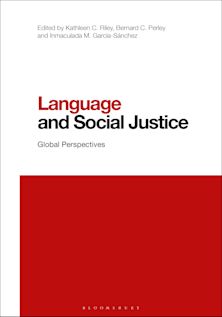- Home
- ACADEMIC
- Anthropology
- Cultural Anthropology
- Not Even a Grain of Rice
Not Even a Grain of Rice
Buying Food on Credit in the Dominican Republic
Not Even a Grain of Rice
Buying Food on Credit in the Dominican Republic
This product is usually dispatched within 3 days
- Delivery and returns info
-
Free US delivery on orders $35 or over
You must sign in to add this item to your wishlist. Please sign in or create an account
Description
Christine Hippert examines buying food on credit in corner stores in Cabarete, an international tourism destination in the Dominican Republic and a hub for migrant laborers. The voices in this book highlight people’s experiences with food, debt, and survival to reveal emerging social changes related to race, gender, class, and citizenship.
Table of Contents
Chapter One: “I’m Not a Racist, But…:” Friction, Anti-Haitianism, and Everyday Intercultural
Relations in Cabarete
Chapter Two : “Everything is Cheaper at the Supermarket, But I Can’t Afford It:” Colmados as a
Total Social Phenomenon
Chapter Three : “Pa’ la Dignidad:” Fiao and the Emergent Moralities of Being Responsible
Chapter Four : “The Door Is Always Open…Until It Isn’t:” The Hidden Labor of Becoming
Gente Responsable
Conclusion: “Fíame, Por Favor:” Ties that Bind in Cabarete
Product details
| Published | Aug 18 2022 |
|---|---|
| Format | Paperback |
| Edition | 1st |
| Extent | 176 |
| ISBN | 9781498569620 |
| Imprint | Lexington Books |
| Illustrations | 13 b/w photos; 1 tables; |
| Dimensions | 9 x 6 inches |
| Series | Crossing Borders in a Global World: Applying Anthropology to Migration, Displacement, and Social Change |
| Publisher | Bloomsbury Publishing |
About the contributors
Reviews
-
Not Even a Grain of Rice effectively interweaves the dynamic interaction between moral economy and food provisioning. At the same time Hippert shows that these “emergent moralities” are also evidence that “perpetual indebtedness is not only a middle-class norm” problem (p. 96) and that both colmado owners and customers remain in largely precarious economic situations. Her insightful ethnography should be of interest to scholars of food security, global migration, development and livelihoods, debt and inequality, and cultural anthropology more generally
New West Indian Guide
-
Not Even a Grain of Rice is exceptionally clear, readable, and beautifully exposes the complex and sometimes contradictory learnings gained from ethnographic research. As Hippert herself mentions, this book would be an excellent fit for an undergraduate audience. Ultimately, it offers critical insights, ethnographic depth, and a generative platform through which to explore how relationships forged through buying food on credit generate a class-based solidarity crucial to the survival of late-neoliberal precarity.
Food, Culture and Society
-
Grounded in rich ethnographic engagement, Hippert reveals the complexities of race and social hierarchies in the context of international tourists and Haitians living and working in the Dominican Republic. By focusing on local forms of support and mutual aid around food access, Not Even a Grain of Rice, upends our understanding of race relations in the Dominican Republic, revealing the ways that community members support one another across difference.
Hanna Garth, University of California, San Diego; author of Food in Cuba: The Pursuit of a Decent Meal
-
With rich ethnographic granularity and sensitivity to the everyday experiences and intercultural tensions that characterize neighborhood life for so many in today’s Dominic Republic, Christine Hippert clearly and convincingly shows how matters of race, nationality, subsistence, privilege, and morality all intersect and find expression in the simple act of food shopping at local colmados (corner stores). Before I even finished reading Not Even a Grain of Rice: Buying Food on Credit in the Dominican Republic, I knew that I would be assigning it in my classes.
Ty Matejowsky, University of Central Florida, author of Fast Food Globalization in the Provincial Philippines
-
Christine Hippert’s beautifully written book uses vivid ethnographic detail to address poverty, class, gender, race, and racism in the Dominican Republic. Focusing on food shopping in the small stores called colmados, it reveals the navigation of relations between Haitians and Dominicans based on the extension of credit called fiao. Their highly complex relations go beyond race and depend on assessments of people’s responsibility in paying debts and helping others. This fascinating book contributes to food studies, the anthropology of race, and Caribbean studies.
Carole Counihan, editor-in-chief, Food and Foodways
-
Hippert’s Not Even a Grain of Rice is a food related ethnography that shows the precarious relationships that develop to access food based on one’s word as a currency and as a social glue to express social and economic solidarity in the Dominican Republic. This work is timely in addressing how people navigate their race, class, and gender in the wider realms of anti-Blackness where privilege and exclusion truncate the trust built on people’s commitment to buy now and pay later. Throughout the Americas, shop owners have signs that read “hoy no fio y mañana tampoco,” warning consumers their word is just not enough to honor the social contracts that have built community and have kept people alive for generations. This book makes a wonderful contribution to the scholarship on food insecurity, food sovereignty, and the ethnography of everyday life and making do in the Caribbean.
Guillermina Gina Núñez-Mchiri, University of Texas at El Paso

ONLINE RESOURCES
Bloomsbury Collections
This book is available on Bloomsbury Collections where your library has access.



































